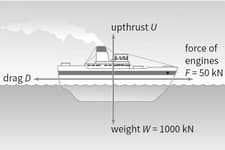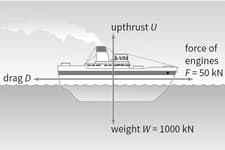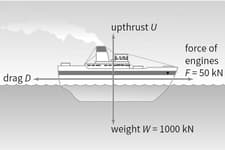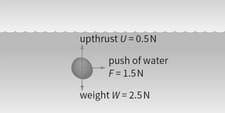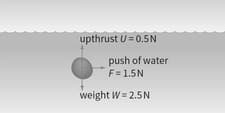A parachutist weighs . When she opens her parachute, it pulls upwards on her with a force of
Draw a diagram to show the forces acting on the parachutist.

Important Questions on Forces: Vectors and Moments
A parachutist weighs . When she opens her parachute, it pulls upwards on her with a force of
Calculate the resultant force acting on her.
A parachutist weighs . When she opens her parachute, it pulls upwards on her with a force of
What effect will this force have on her?
The ship shown in Figure is travelling at a constant velocity.
Is the ship in equilibrium (in other words, is the resultant force on the ship equal to zero)? How do you know?
The force is the frictional drag of the water on the boat. Like air resistance, drag is always in the opposite direction to the object's motion.
The ship shown in Figure is travelling at a constant velocity.
What is the upthrust Of the water?
The force Is the frictional drag of the water on the boat. Like air resistance, drag is always in the opposite direction to the object's motion.
The ship shown in Figure is travelling at a constant velocity.
What is the drag of the water?
The force is the frictional drag of the water on the boat. Like air resistance, drag is always in the opposite direction to the object's motion.
A stone is dropped into a fast-flowing stream. It does not fall vertically because of the sideways push of the water. Calculate the resultant force on the stone.
A stone is dropped into a fast-flowing stream. It does not fall vertically because of the sideways push of the water
Is the stone in equilibrium?
The person in Figure is pulling a large box using a rope. Use the idea of components of a force to explain why they are more likely to get the box to move if the rope is horizontal (as in a) than if it is sloping upwards (as in b ).
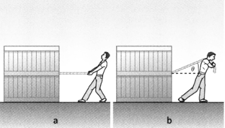
Why is it easier to move the box with the rope horizontal?

